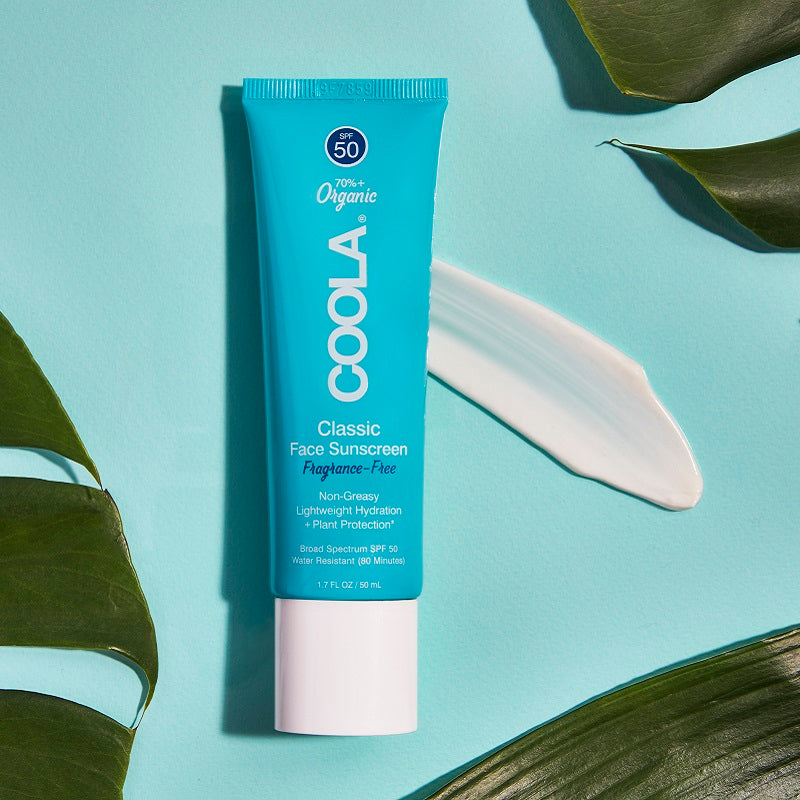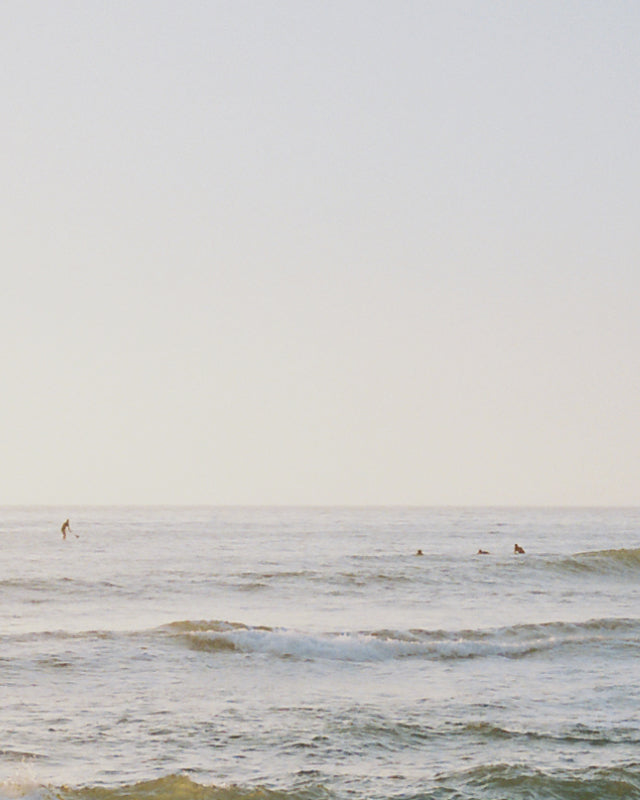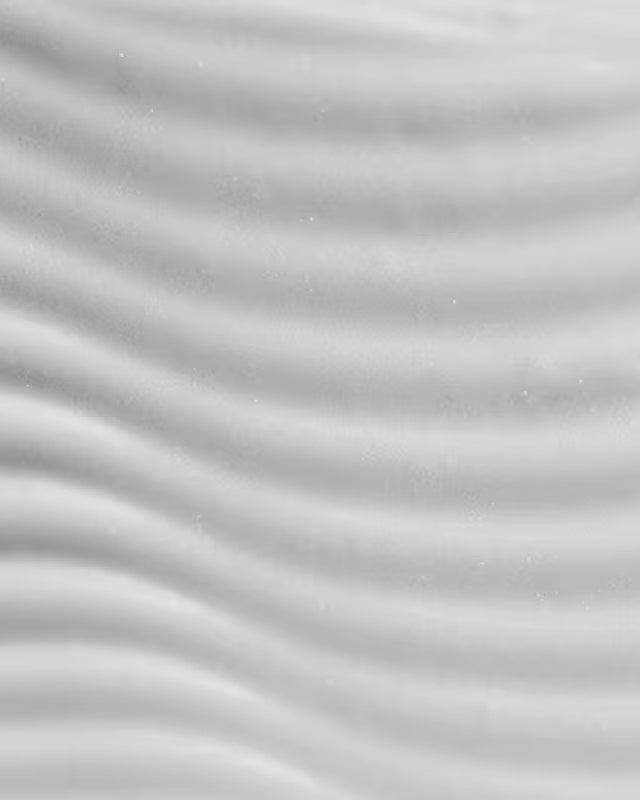
Does Sunscreen Expire? Sunscreen Expiration Explained
Sunscreen is an essential part of any year-round sun protection routine, shielding our skin from harmful UV rays and sun damage. And now that summer is officially here, you may wonder if last year’s tube is still good—or does sunscreen expire? Is sunscreen still effective after its expiration date? Here, we'll explore the topic of sunscreen expiration, including factors that contribute to it, how to determine if sunscreen has expired, and the potential consequences of using expired sunscreen. Because at COOLA, we’re committed to helping you feel confident about what you put on your skin.
Does Sunscreen Expire?
The bottom line? Yes, sunscreen does expire.
Why? Well, like many other skincare products, sunscreen has a limited shelf life. Over time, its active ingredients can degrade, reducing its effectiveness in protecting your skin from the sun. Using expired sunscreen may not provide the level of sun protection you need, putting you at risk of sunburn and skin damage from powerful UVA and UVB rays.
How to Know When Sunscreen Expires
Determining the expiration date of sunscreen is crucial for ensuring its effectiveness. Here are some ways to help you know when sunscreen expires:
- Check for an expiration date. Many sunscreen products include an expiration date on the packaging. It's usually indicated by the "EXP" or "Expiration Date" label, followed by the month and year. Check the date before using the sunscreen, and if it has passed, it's time to replace it.
- Look for the symbol of an open jar. Some sunscreens have a symbol of an open jar with a number inside on the packaging. This number indicates the product's shelf life after opening. For example, if you see "12M," it means the sunscreen is good for 12 months after opening it.
- Observe any signs of degradation. Pay attention to any changes in the sunscreen's consistency, color, or smell. If the product has become clumpy, discolored, or has an unusual odor, it's a sign of expiration, and it's best to throw it out.
How long does sunscreen last?
The shelf life of sunscreen can vary depending on various factors. While some sunscreens may last up to three years, others may have a shorter lifespan. Factors that influence sunscreen shelf life include:
- Formulation: Different sunscreen formulations, such as creams, lotions, sunscreen sprays, and sunscreen sticks, have varying stability and expiration periods. Along with many other differences between mineral and chemical sunscreens, sunscreen products with chemical filters have a shorter shelf life than mineral sunscreens.
- Storage conditions: Proper storage is crucial in prolonging sunscreen's shelf life. Keep your sunscreen away from direct sunlight and high temperatures, as exposure to heat can accelerate the degradation of its active ingredients. Store it in a cool, dry place, like a bathroom cabinet or a drawer.
- Packaging: Sunscreen packaged in tubes or bottles with pumps that minimize exposure to air and contaminants tend to have a longer shelf life. On the other hand, products in jars may be more susceptible to contamination and degradation than a sunscreen bottle.
It's important to note that even within the stated expiration period, sunscreen can lose efficacy over time. To ensure maximum protection, it's always best to use sunscreen within a year of purchase.
Consequences of Using Expired Sunscreen
Using expired sunscreen may compromise your skin's protection against the sun, such as:
- Reduced sun protection: As we mentioned earlier, as sunscreen ages, its active ingredients degrade, making it less effective in blocking UV rays from the direct sun. This can lead to weak sun protection and an increased risk of sunburn, premature aging, and skin damage from unprotected sun exposure.
- Skin irritation: Expired sunscreen may contain ingredients that have broken down or become unstable, potentially causing skin irritation or allergic reactions. If you notice any unusual reactions or skin sensitivity after applying sunscreen, it's best to discontinue its use and consult a dermatologist.
- Increased risk of sunburn and skin damage: Using expired sunscreen exposes your skin to harmful UV radiation without adequate protection. Sunburns not only cause immediate discomfort but can also contribute to long-term skin damage and increase the risk of skin cancer.
Protect Your Skin and Enjoy the Sun Responsibly with COOLA
There are numerous benefits of sunscreen, which is a vital tool for safeguarding our skin from the sun's harmful rays. At COOLA, we’re dedicated to producing suncare products that are both powerful and effective. Whether you have a bottle of sunscreen lotion or face sunscreen, it's essential to be aware of sunscreen expiration and understand its potential consequences. So, always check the expiration date, keep an eye (and nose) out for signs of degradation, and follow proper storage guidelines. Don't take chances with your skin's health—use fresh and effective sunscreen for optimal sun protection. And remember, sun safety starts with using sunscreen that is within its expiration date and offers the protection your skin deserves.
By being informed about sunscreen expiration, you can enjoy the outdoors with confidence, knowing that your skin is protected from the sun's harmful effects.
Sources:
- Does sunscreen expire? Mayo Clinic. Published 2021. Accessed July 5, 2023. https://www.mayoclinic.org/healthy-lifestyle/adult-health/expert-answers/sunscreen-expire/faq-20057957
- Calvo T. Does Sunscreen Expire? Consumer Reports. Published April 10, 2018. Accessed July 5, 2023. https://www.consumerreports.org/health/sunscreens/does-sunscreen-have-an-expiration-date-a3175803160/




